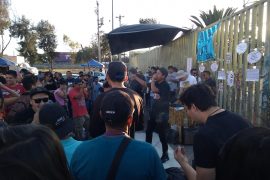Elizabeth Aristizábal Gómez
mexico
5 March 2019Ph.D. Student
Political and Social Sciences, Universidad Nacional Autónoma de México (UNAM)
The case study on young marijuana users in public spaces in Mexico City, seeks to explore the meaning of this practice in two different areas: one of residence and one for gathering. The residence area allows studying the consumption in public spaces of the neighborhood in which these marijuana users live, which implies the possibility of being observed by relatives and neighbors. The gathering zone refers to places far away from the neighborhoods where young people live, where they meet people of different places and are not exposed to the observation of relatives and neighbors.
The aim is to contrast the practices of occupation of public space and the way in which transgression takes place; also to identify the sense assigned by marijuana users to this transgressive practice, the justifications that they construct to minimize doubts or feelings of discomfort or guilt and whether or not they are articulated with political positions of questioning the prohibition of marijuana.
In both cases, attention will be paid to the way in which young people face the formal regulations (those derived from the legal framework) and informal regulations, built by themselves around their transgressive practice (care strategies). The case study contemplates an intervention phase. Thus, from fieldwork and dialogue with young people and their own contributions, we would seek to produce audiovisual materials with their positions (questions) against the prohibition, the development of workshops to learn about the community’s perceptions about marijuana and provide them with adequate information about its effects, the movements in favour of changes in legislation, etc.
Keywords: Public spaces; marijuana users; transgressive practice; youth; formal and informal regulations.
Supervisors: Ángela Margoth Bacca Mejía y Carlos Alberto Zamudio Angeles






